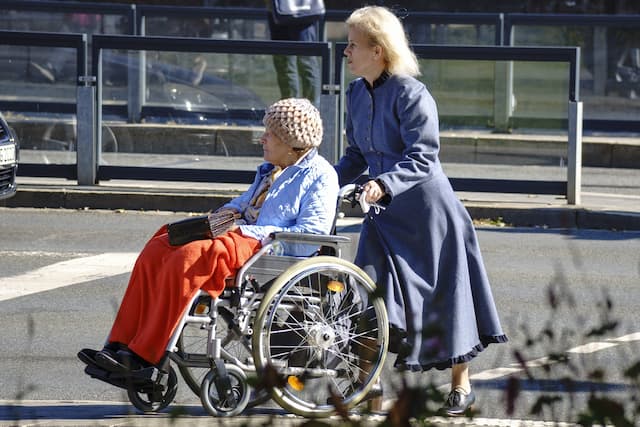Managed Long- Term Care Medicaid Plan - Sue LeDoux


Had enough? Say “Uncle.” Do kids still say that when they want a playmate to give up?
Sometimes caregivers need to recognize when it’s time to cry “uncle.” A loved one may have so many care needs, the family caregiver does not know where to begin. He just wants to keep Mom or Dad safe at home, but issues are many and overwhelming. Time to call in the big guns.
Managed Long-Term Care Medicaid Plan
(MLTC)
Many years ago when I worked in the Monroe County Home Care Services Unit, we authorized and monitored a Medicaid plan much like this one. I suppose it’s the latest replacement. There are some similarities and some differences.
I want to tell you about it because I thought it was a God-send then, and in many ways, it still is. The caveat is one must have active Medicaid (unlike Medicare for those over 65, Medicaid pays for care for those whose income and savings are below the limit set by the state.)
That being established, this MLTC provides managed care for the long haul. Once the potential client has been assessed and approved for the program, a Community Health Care Nurse (CHN) through a local agency will assess your loved one. In conjunction with family input, he or she will put together a plan of care (POC) that is safe and addresses the client’s specific care needs.
Most often, a good POC will pull together a variety of services, rather than throw in a Home Health Care aid for a few hours to try to do everything. The Plan can change as needs change, either for the better or worse.
Sample Plan of Care
Let us assume the patient is your 85 year old mother who is at risk for falls, is too frail to cook for herself, needs help with bathing and dressing, and is bored to tears stuck at home all the time. Most of her friends have died or moved on. You are squeezed between work, your immediate family life and your Mom.
Cry “Uncle” yet?
Most likely, your Mom’s POC would look something like this.
Aide service
- A home health aide for a few hours each day to help her bathe, dress in the morning and prepare her breakfast. While your Mom eats breakfast, the aide makes her bed and does light housekeeping tasks. She can prepare meals in advance for your Mom as well.
Meals on Wheels
- If your mom does not need a home health aide, but is not eating well, home delivered meals may be ordered. Not only will they be delivered, but the volunteer will also get to know your mom, and will chat with her a bit when delivering her meals.
She may notify her supervisor if she is concerned about your Mom. Maybe your Mom seemed confused, and that is unusual for her. Based on the volunteer’s observation and report, the CHN may ask you questions about your Mom’s “affect” (how she has appeared lately- confused? anxious? depressed?) Based on that, CHN may make a referral to a neurologist or geriatrician. It could turn out to be something as common as a urinary tract infection, because confusion is a common symptom of a UTI.
PERS
- I can attest to the fact that you can be standing next to a person, and they still fall. My mother was standing next to her recliner for support while her nurse was straightening out her oxygen tubing so Mom would not trip on it. And Mom fell right then.
So the solution is not 24 hour care, but to prevent complications of a fall by getting immediate help. Enter the Personal Emergency Response system (PERS). The PERS system is attached to the phone, so if the patient presses the button even in another room, a responder will speak into the room through her phone system.
My favorite PERS war story from my nursing experience is the lady who lived in an inner city apartment in a high crime area. Her PERS button hung from a cord around her neck and rested on her chest.
There was a knock on her door.
“Who is it?” she asked.
“Ronnie. I’m a friend of your son’s. Can I come in?”
“Sure, door’s open.”
He came in alright, wielding a knife. She clasped her arms across her chest, triggering the call button, and cried, “Sweet Jesus, help me!”
A voice boomed, “Can I help you?” Good old Ronnie flew out of her home, never to be seen again.
Day Programs
- I think that for an isolated elder, a social or medical (if client needs hands on help) day care is the best thing since sliced bread. However, it is a rare elder who will agree to “day care.” I think the term is demeaning because we think of day care as something for children. Instead, I would ask, “Would you like to get together with folks your age for lunch and a program or two a few days a week?” Follow up their “Yes!” with, “I found a place like that. How about we visit and see if you’d like it?” (I don’t know if visits are allowed since COVID, but do ask. Chances are better if your loved one can make an educated decision.)
So that’s the plan I would put in if I were your Mom’s CHN. Plans need to remain fluid as care needs change.
What happens if hospitalization occurs?
Fortunately, the wheel does not need to be reinvented. Assuming it was not a long hospital or rehab stay, your loved one may return to the home care program, perhaps with adjustments to the original plan. Physical therapy, occupational therapy, home safety modification may now be required. I love how the program moves as the client moves.
Final Thoughts
This program also offers a Consumer Directed Care component (CDPAP) whereby the client, or directing family member, can hire, train, and monitor the hands on care provided by a friend or family member. (That’s another blog for me to share with you in the future.) The number of hours approved per week is determined by the CHN based on how long assistance with bathing, dressing, food prep or feeding, take per day.
Medicaid does not pay for supervision. If your loved one has dementia, the program will pay only for hands on care hours, and not the hours when he/she needs to be watched.
The state is willing to pay for home care because it costs less than in an institution. So much for altruism. But if a person can be cared for in her home, she maintains control and can live surrounded by family and treasured memories.
That would be my choice, and probably yours as well.










